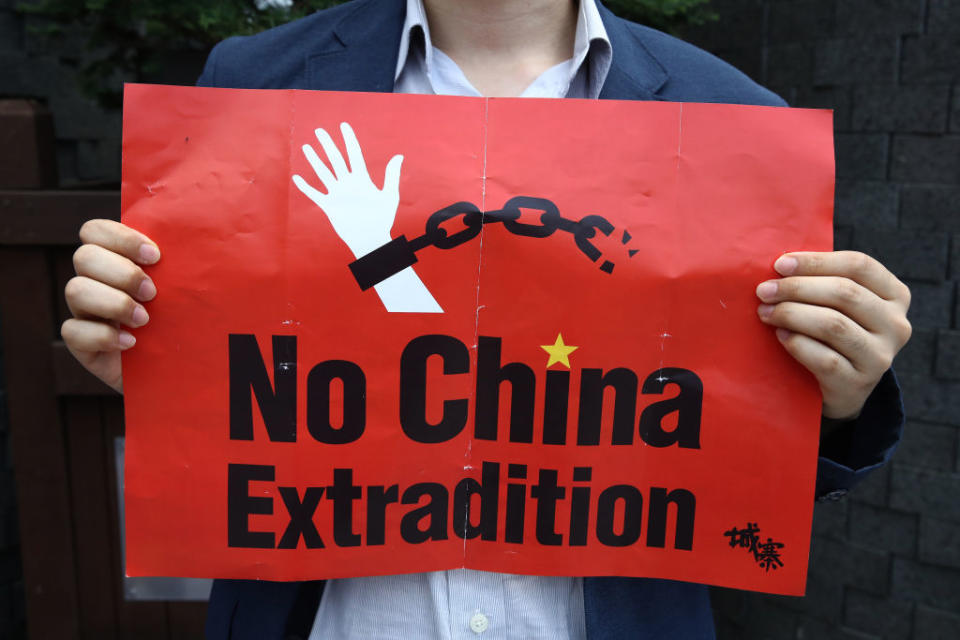Will Hong Kong's extradition laws be bad news for Aussie businesses?

It would be hard to escape talks about the mass protests that have taken place in Hong Kong over the last week.
At its peak, the turnout to the protests was 338,000, BBC reported.
Hong Kong’s chief executive, Carrie Lam, has since suspended the bill, but said she couldn’t withdraw it fully, “or else society will say that this bill was groundless”.
But, to understand the controversy, we’ll need to take it back a notch to when Hong Kong was returned to Chinese rule in 1997.
What are the Hong Kong protests about?
Hong Kong was formerly a British colony, but it was returned to Chinese rule in 1997.
The deal was that China would rule Hong Kong alongside itself as one country, but maintain two separate systems that guaranteed a level of autonomy for Hong Kong residents.
But, the lines of those “two systems” seemed to blur a little when Hong Kong’s chief executive, Carrie Lam, proposed a bill that would mean Hong Kong citizens who committed crimes in China would be extradited to the mainland to stand trial, where processes are arbitrary.

What will this mean for Aussie businesses?
Last week, Labor’s foreign affairs spokeswoman, Penny Wong, said Australian citizens and companies could get caught up by Hong Kong’s proposed extradition laws.
Wong said the legal amendments would allow the extradition of people, including Australians living or travelling through Hong Kong, to mainland China for suspected criminal acts.
Wong also expressed concerns for the message these laws would send to foreign companies operating in Hong Kong.
AMP chief economist, Shane Oliver, told Yahoo Finance that while Aussie businesses who were suspected of corporate criminal acts in China could be extradited to mainland China, the main issue is what this means for Hong Kong going forward.
“It’s not that different to the US extraditing the Huawei executive from China,” Oliver said.
“The broader issue is that if Hong Kong is being subsumed into China, then companies might conclude that [to the extent that they’re in Hong Kong for its freedoms] they might be better off elsewhere.”
Lots of countries have extradition bills, why is this so contentious?
On the surface, protestors in Hong Kong are fighting Lam on the extradition bill.
But, under the hood, protestors are concerned about the future of democracy in China, and they’re fighting off Beijing’s creeping authority.
That authority is one that’s curbed freedom of speech in China, and Oliver said this is what is primarily driving the protests.
“It reflects concerns that the freedom of speech in China is perhaps less than it is in Hong Kong at the moment,” Oliver said.
“And so therefore, the protest was sparked by worries that Hong Kong would lose its free speech, to the extent that journalists who write critical things about China in Hong Kong could be extradited back to mainland China,” he said.
Make your money work with Yahoo Finance’s daily newsletter. Sign up here and stay on top of the latest money, news and tech news.

 Yahoo Finance
Yahoo Finance 